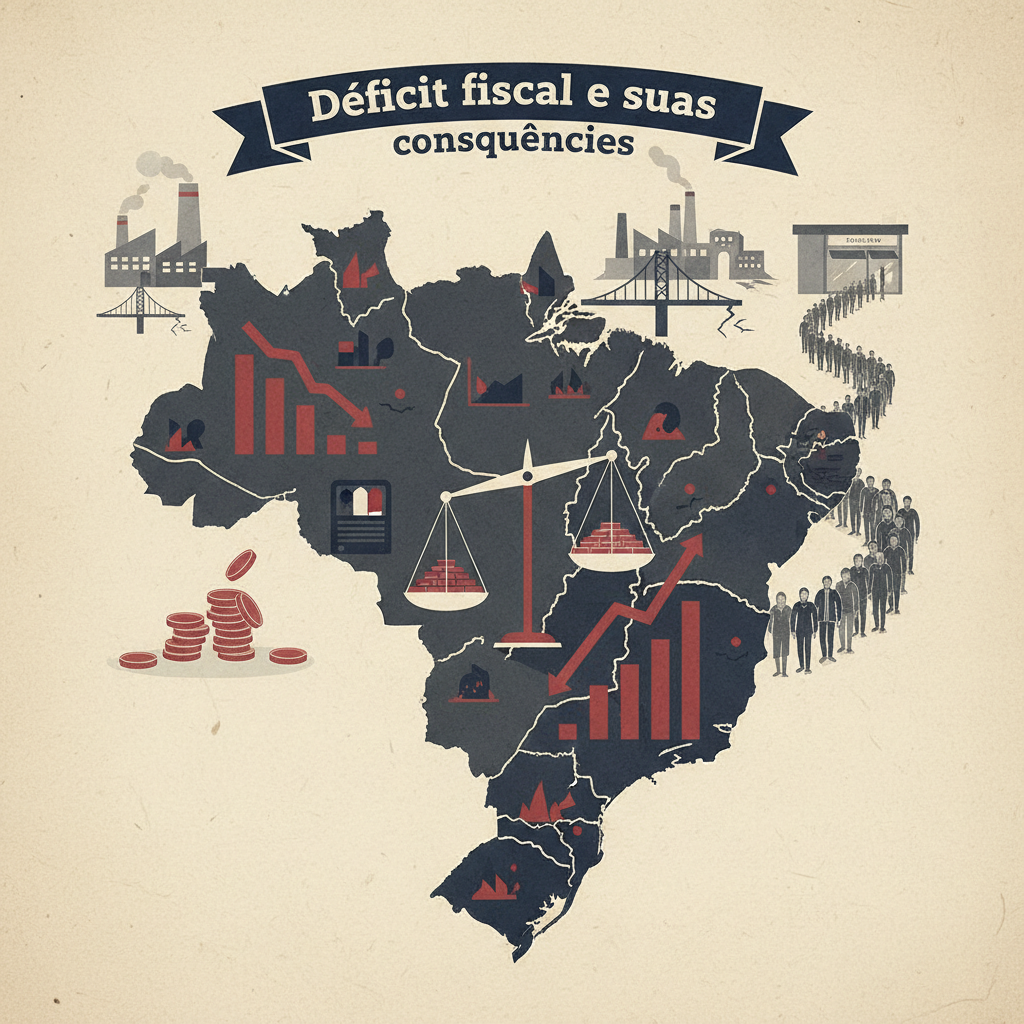Definition and causes of the fiscal deficit
The fiscal deficit it occurs when public expenditures exceed income in a given period. This situation forces the government to seek external financing or increase debt.
A high fiscal deficit can generate serious economic consequences, affecting the stability and capacity of the State to finance its social policies and projects.
What is the fiscal deficit
The fiscal deficit is the negative difference between the income received by a government and its total expenses in a specific period. It indicates that the State spends more than it receives.
This gap forces governments to finance additional spending through loans or debt issuance, increasing the future financial burden.
A persistent fiscal deficit can affect the overall economy, causing inflation and reduced long-term economic growth.
Factors that cause the fiscal deficit
Several causes can generate a fiscal deficit, including excessive increases in public spending without a proportional increase in income.
The drop in tax revenue due to economic crises or tax evasion also contributes to the fiscal imbalance.
External factors such as fluctuations in commodity prices or recessions can affect collection, generating an unforeseen deficit.
Furthermore, expansive fiscal policies without sufficient economic support increase spending and deteriorate public finances.
Impact on public debt and the economy
The fiscal deficit it increases public debt, since the State must finance additional spending through loans or bond issuance. This limits the country's financial capacity.
Furthermore, the need to resort to external sources generates dependence on international financial markets, increasing vulnerability to global economic crises.
It also influences inflation and currency stability, negatively affecting the purchasing power of the population and making imports more expensive.
Increase in public debt
When a government has a fiscal deficit, it is forced to impose public debt to cover spending. This causes a constant increase in state debt.
The increase in debt generates higher interest payments on future budgets, reducing resources available for other priority areas of the country.
This growth in debt can also generate distrust among investors, raising the cost of financing and making access to credit difficult.
Dependence on financial markets
The fiscal deficit creates a strong dependence on financial markets, since the government must obtain external or internal financing to cover its spending.
This dependence exposes the country to interest rate fluctuations and volatility in the markets, increasing the risk of unforeseen economic crises.
Furthermore, this situation can restrict the government's autonomy to adopt fiscal and monetary policies, limiting its options in the face of emergencies.
Effects on inflation and currency
Monetary financing of the fiscal deficit usually generates inflationary pressure, reducing purchasing power and affecting the family economy.
A persistent deficit can also lead to depreciation of the national currency, raising import costs and further fueling inflation.
These effects deteriorate macroeconomic stability and can lead to a loss of confidence among both investors and consumers.
Consequences for investment and economic confidence
The fiscal deficit increases financial costs for the State and companies, making loans more expensive and making economic expansion difficult.
This increase in costs limits business competitiveness and significantly reduces incentives to invest in new projects.
Increase in financial costs
When the fiscal deficit is high, the government must issue debt at higher rates, increasing the cost of both public and private financing.
Companies also suffer this effect, as they face higher interest rates that make investment difficult, affecting their ability to grow.
This increase in costs contributes to slowing down the economy, as it reduces the availability of capital for productive projects.
Uncertainty and reduction of private investment
The deficit generates economic uncertainty that affects the confidence of investors, who may choose to delay or cancel investments.
The lack of security over fiscal stability limits the arrival of foreign capital and the expansion of national businesses.
This reduction in private investment slows economic development and limits job creation, affecting social well-being.
Long-term effects and associated risks
The chronic fiscal deficit causes the deterioration of public policy, limiting the State's capacity to implement effective and sustainable measures.
In addition, the country's credit rating is negatively affected, making external financing more expensive and increasing economic vulnerability.
Deterioration of public policy and credit rating
A persistent fiscal deficit reduces the resources available for social policies and development, affecting the quality and scope of public services.
Rating agencies lower the country's credit rating due to fiscal risk, which raises interest rates and makes access to new loans more expensive.
This deterioration limits the government's ability to effectively manage the economy and deal with necessary emergencies or investments.
Vicious circle of debt and social impact
The deficit leads to greater debt which, in turn, increases the need to finance interest and capital, creating a cycle that is difficult to break.
This vicious circle affects social well-being, since fewer resources are allocated to education, health and social programs, increasing inequality.
Furthermore, the associated fiscal pressure and inflation reduce the purchasing power of the population, aggravating the economic conditions of vulnerable sectors.






